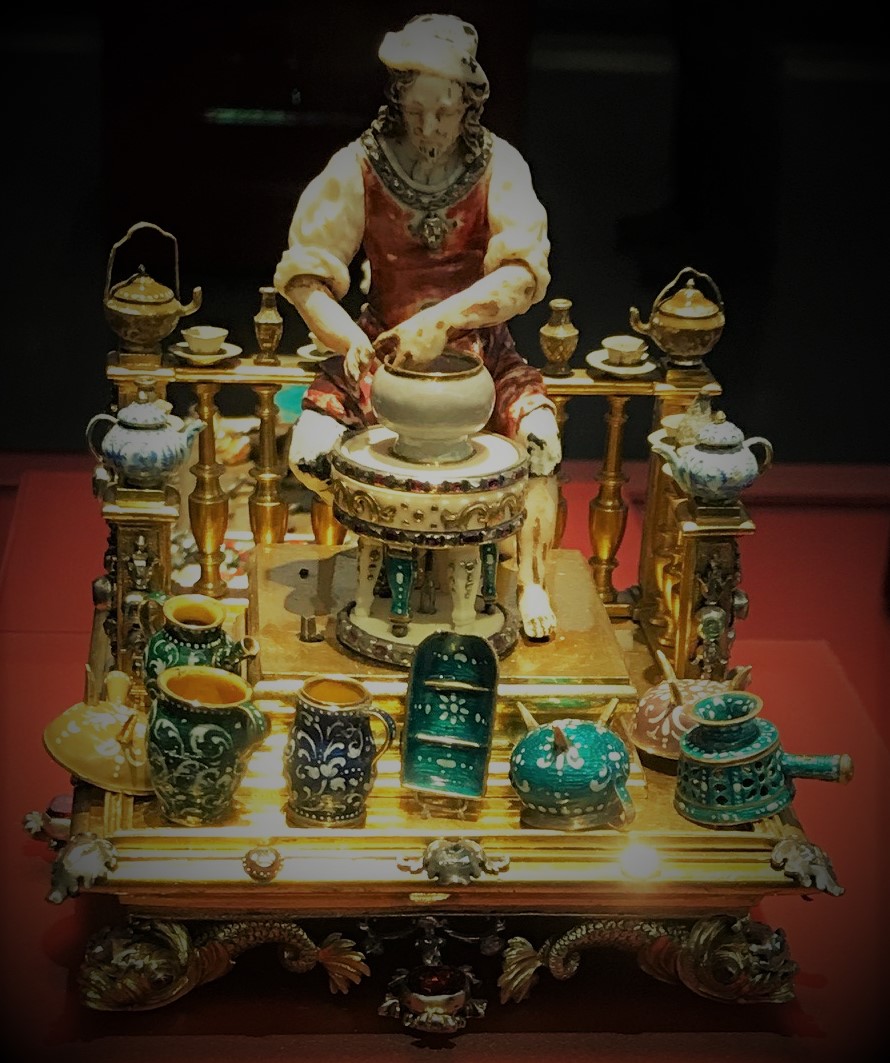As part of the response to COVID-19/Coronavirus implemented by the University of Copenhagen and the Danish Health Authorities, the symposium Practices of Privacy: Knowledge in the Making will move online. A live event will still happen, but it is postponed until such a time when we are again permitted to host public gatherings.
Practices of Privacy:
Knowledge in the Making
Online event

Töpfer an der Drehscheibe
Juwelierarbeit, Johann Heinrich Köhler, Dresden, 1710-1720
How can we think about private practices of knowledge in a historical perspective? Though we tend to associate knowledge with the mind, the intellect, or the brain, much of what we come to know starts with concrete engagements with the world: experimentation, rehearsal, repetition, habit formation, all of these are intrinsic to getting to know something, and getting to know it well.
This sort of knowledge development is often done more comfortably in private. In the privacy of a study, a laboratory, a rehearsal hall, learners can afford to experiment without the fear of being caught making a mistake. In the emotional safety of moments of solitude, they can have the liberty of attempting things they would never try in the company of others. They can practice a skill until they become good enough to share it with an audience. They can develop rough ideas until these are clear and understandable. They can protect these nascent ideas from the prowling eyes of competitors.
Even when practices of knowledge require a more social component, there might still be a concern for maintaining a certain level of privacy. Rules of transmission define who has permission to acquire certain knowledge. Groups create strategies to confine the spreading of their techniques. Masters and apprentices share their knowledge under strict rules of the trade. Cooks have key ingredients remain unrevealed to the public, and basically every grandmother is the keeper of a secret family recipe.
All of this is true enough of how people learn and share knowledge today. Could we, as historians, assume that a similar tendency towards privacy was true also for learners in the past? It is safe to assume that most of the extant historical sources on knowledge production have gone through some level of polishing. Very few traces are left that bear witness to knowledge in the making—when ideas were still rough around the edges—precisely because people must have been keen on keeping onlookers at bay. The challenge of examining these hidden practices is what we pose to historians at the symposium “Practices of Privacy: Knowledge in the making.”
UPDATE: This call has now closed and speakers have been selected.
We suggest the following topics (this list is not meant to be exhaustive, but rather as inspiration):
- Secrets, solitary techniques, protection of knowledge
- Healing and health confidentiality
- Habit formation
- Household maintenance, solving daily problems, everyday activities
- Movement, performance, emulation, rehearsal
- Meditation, praying, mantra recitation
- Protection of private information
- Relational privacy, underground networks, secret societies
- Lack of privacy to learn
- Unexpected or improvised hidden places of knowledge-making
Organizers: Natacha Klein Käfer and Natália da Silva Perez, Postdoctoral Researchers at the Centre for Privacy Studies
